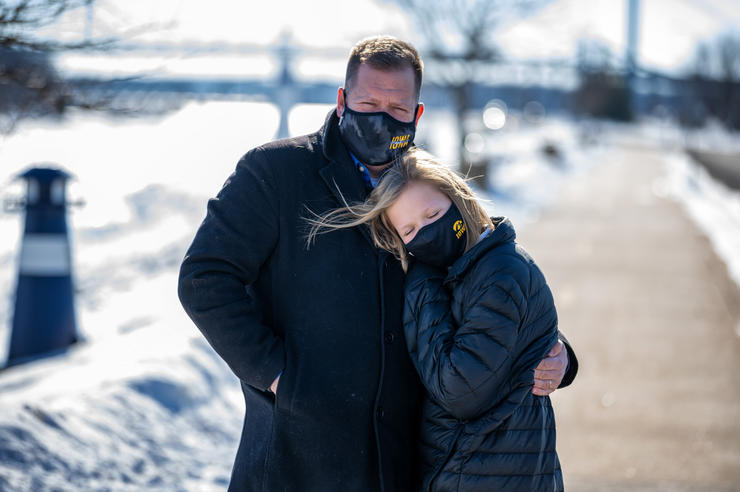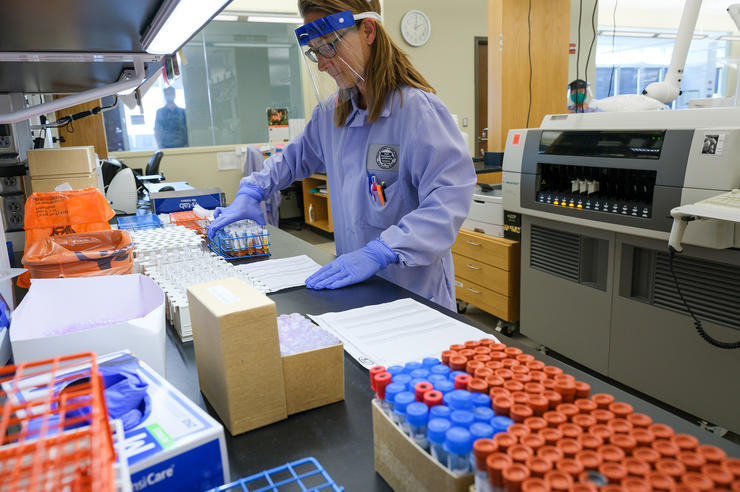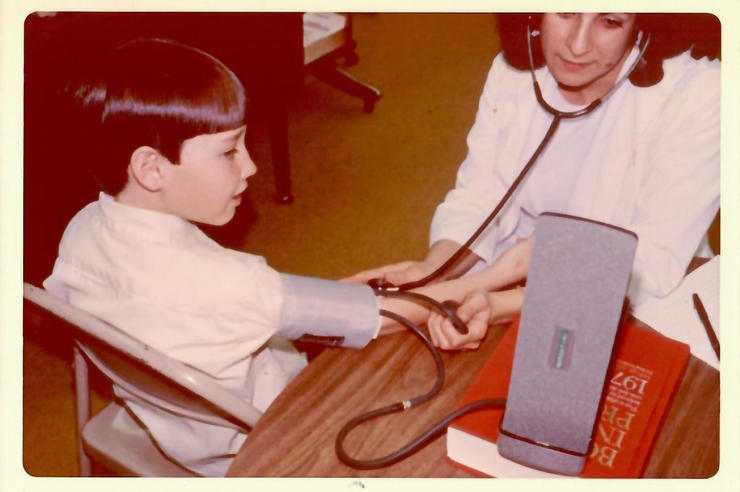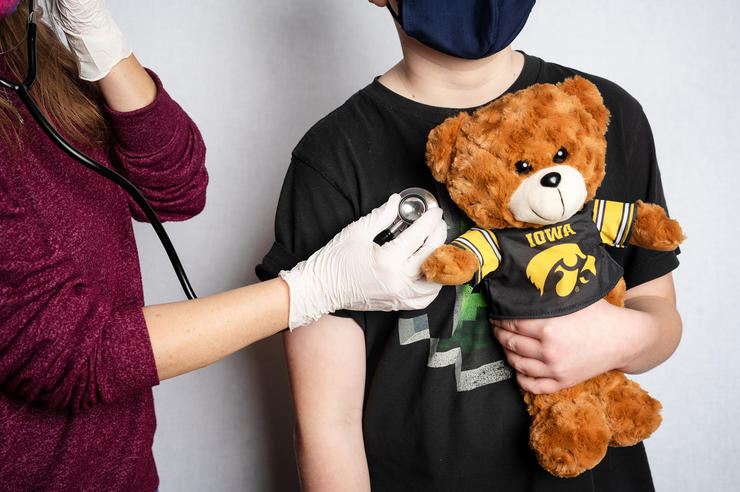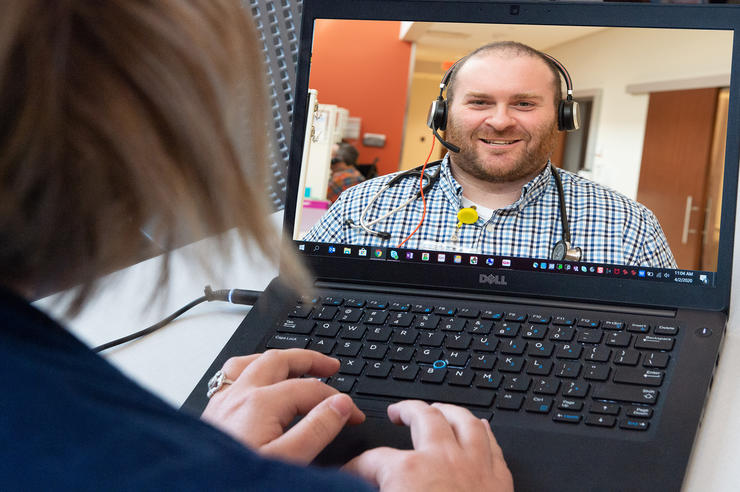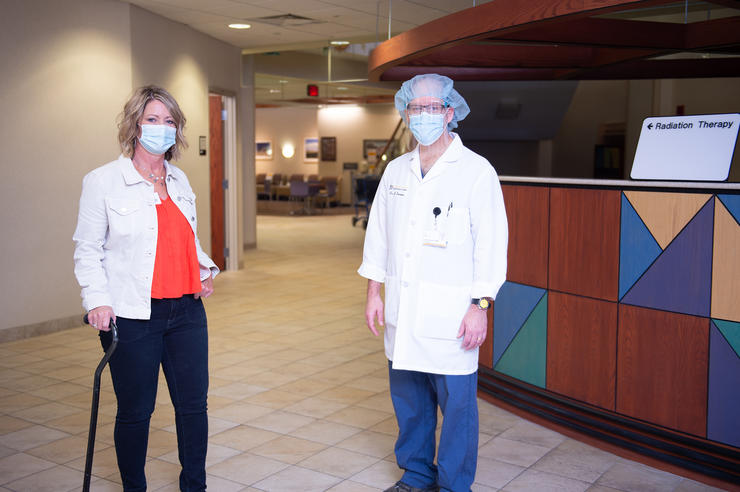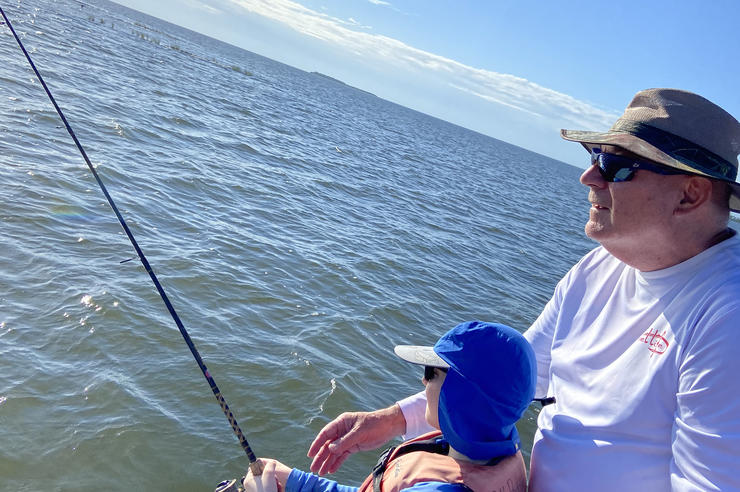Shouldering the load once again
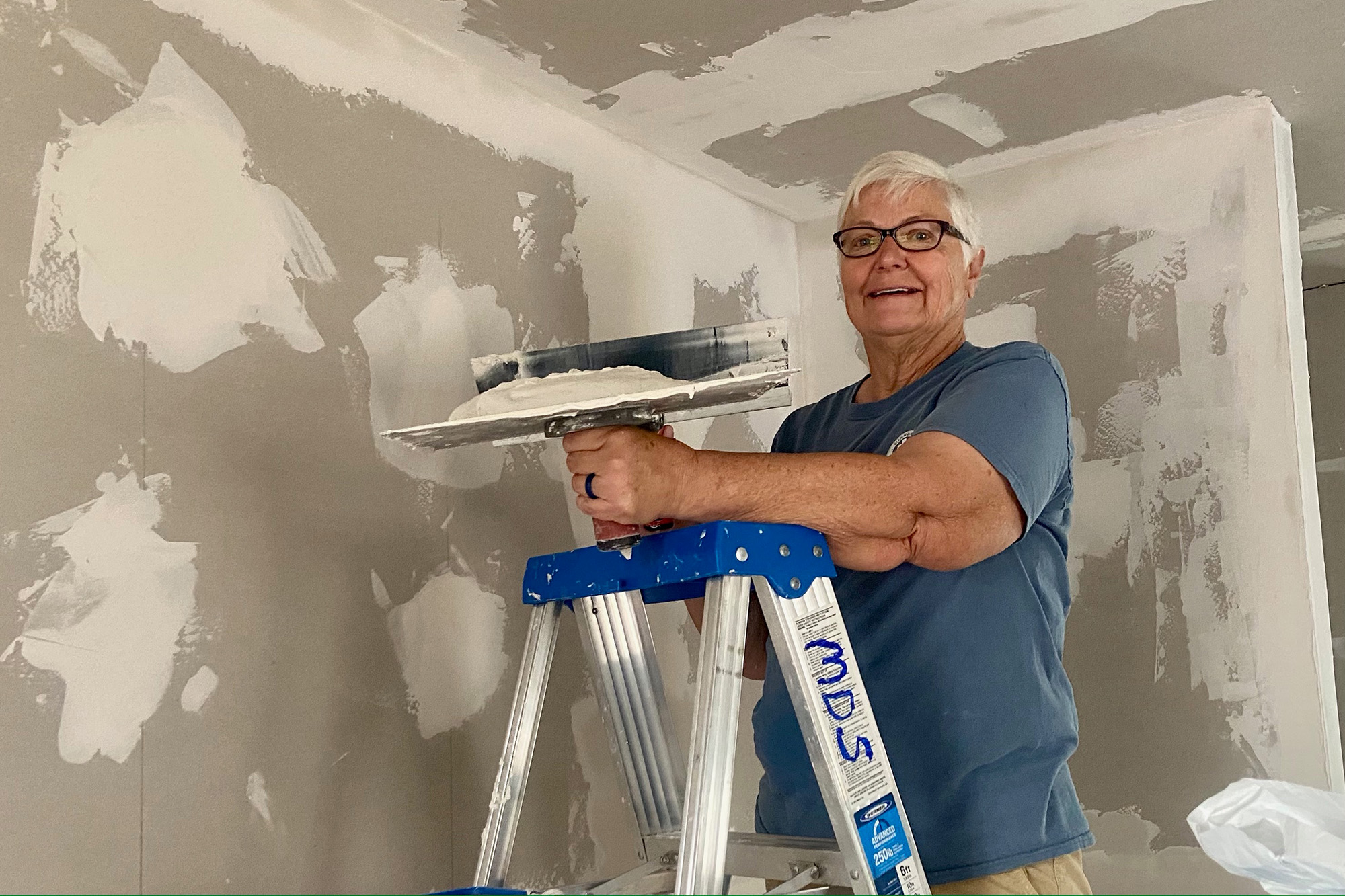
Rita Wolf, of Monticello, Iowa, loves spending winters with her husband, Ken, on volunteer mission trips to repair and rebuild homes after disasters. But shoulder pain began to make the labor of love too difficult.
In recent years she was able to find some relief from the pain by getting a steroid injection before each trip. After a few years, however, the injections became less effective.
In the summer of 2020, Wolf asked University of Iowa Hospitals & Clinics orthopedic surgeon Brendan Patterson, MD, if he had a treatment that would allow her to get back to work on their next mission.
University of Iowa’s orthopedic team of shoulder specialists are the same physicians who treat the athletes of the Iowa Hawkeyes’ sports teams. As Iowa’s only nationally ranked orthopedics program, we are committed to providing personalized care aimed at relieving your pain, helping you heal, and getting you back to enjoying the activities you love.
Patterson recommended anatomic total shoulder arthroplasty, a type of shoulder replacement for people like Wolf who want to stay active and get back to improved function.
Three months after surgery, Wolf earned an A+ from Patterson for her effort in physical therapy and successful recovery. She looked forward to heading to Texas three months later.
“My shoulder is pain-free enough I can work and volunteer and do the things I love—being active and helping others,” says Wolf, a former nurse, pastor, and hospice chaplain who is now retired.
A better solution than injections
Wolf tried steroid injections for three years. The first year, the injection kept her hammering for three months. But by 2020, the shoulder pain returned after only a month.
When she visited Patterson, she thought he might diagnose something minor, with an easy fix.
“We pride ourselves in being available. When surgery is needed, we do what we can to expedite the processes. We work hard to consolidate testing and appointments so patients can get everything done in one day, especially if they’re driving from a few hours away.”
“I was hoping for a little tear. When he told me I needed a total replacement, I said, ‘You’ve got to be kidding,’” Wolf says. “It wasn’t something I was planning on.”
Patterson explained that arthritis was to blame for Wolf’s pain. No other treatments could help, and the pain would only get worse. Wolf knew from experience he was right. She’d had two knee replacements.
Because Wolf’s rotator cuff—the group of muscles that holds the shoulder in place—was healthy, Patterson recommended anatomic shoulder replacement, which involves replacing the original ball-and-socket joint with artificial components.
“Many patients with a healthy rotator cuff who have an anatomic replacement can get back to very high levels of function after surgery,” Patterson says.
Fast track to surgery
Shoulder pain was also keeping Wolf from swimming, aerobics, and boot camp classes, so she knew the replacement would improve her life.
But she was concerned that her recovery would take too long to guarantee that she’d be pain-free by January, when she and Ken had their sixth assignment with Mennonite Disaster Service on the calendar.
“The surgery has gotten me back to my norm, from the slightest little thing—like getting dressed by myself—up to being back to pulling weeds and mowing and helping rebuild homes for people who’ve lost everything.”
Patterson listened to her concerns and assured her that he could help her meet her goals.
“As an old nurse, I’ve seen a lot of bad bedside manner,” Wolf says. “Dr. Patterson doesn’t have bad bedside manner. He sat and talked with me and answered every question I had. He knew it was important for me to be raring to go by January so I could be ready to hammer, paint, tear down, and climb on roofs.”
Patterson requested that the surgery be scheduled by the end of July. All Wolf needed to do was complete her scans and pre-op tests within three weeks to confirm she had no underlying medical issues.
“We pride ourselves in being available,” Patterson says. “When surgery is needed, we do what we can to expedite the processes. We work hard to consolidate testing and appointments so patients can get everything done in one day, especially if they’re driving from a few hours away.”
Patterson says he was able to do surgery on July 30 as planned because Wolf was so healthy and flew through testing.
Wolf’s good health paid off during her recovery, too. She started physical therapy two weeks after surgery and quickly built back strength and range of motion in time to take on her next assignment.
“The surgery has gotten me back to my norm,” Wolf says, “from the slightest little thing—like getting dressed by myself—up to being back to pulling weeds and mowing and helping rebuild homes for people who’ve lost everything.”
